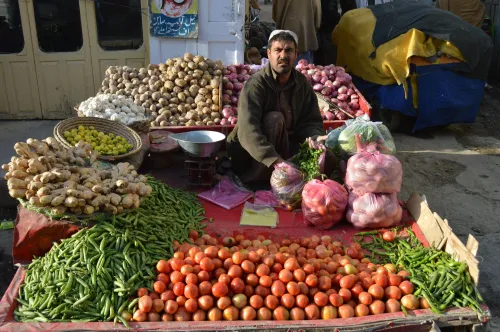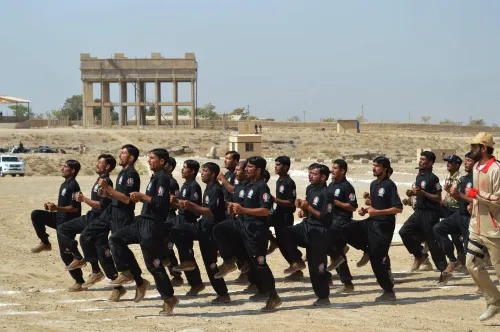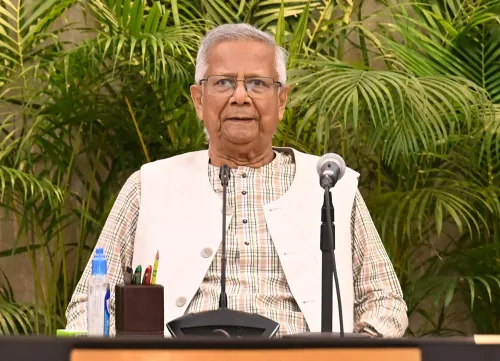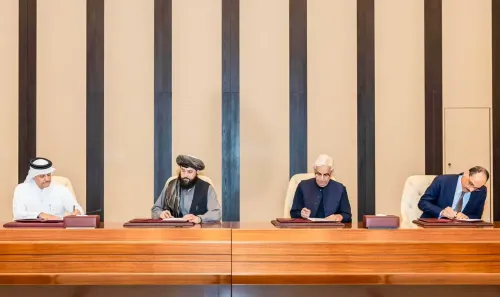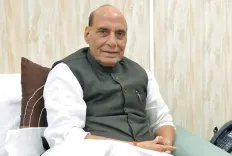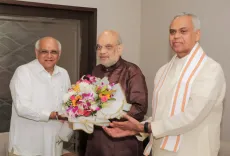Is Pakistan the Architect of Terrorism as State Policy?
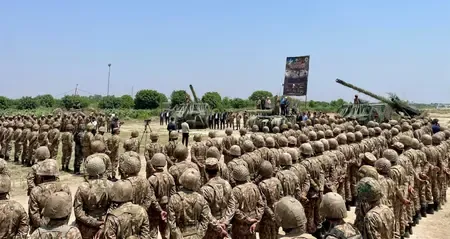
Synopsis
Key Takeaways
- Pakistan's military acts as a key architect of terrorism.
- The ISI supports jihadist groups for strategic advantages.
- There is a duality in Pakistan's approach to terrorism, supporting some while combating others.
- Instability in Balochistan threatens regional investments, notably CPEC.
- Global counterterrorism efforts struggle against Pakistan's duplicity.
In a region that has consistently struggled with insurgency and instability, the military establishment of Pakistan has not only participated but has played a crucial role in the intentional orchestration and international dissemination of terrorism. Rather than being an unintended consequence of geopolitical turbulence, the facilitation of terrorism by Pakistan is a deliberate, institutionalised aspect of its strategic doctrine—forming a lasting foundation of its statecraft. From providing refuge to global jihadist groups to allegedly leveraging ISIS in efforts against both the Afghan Taliban and Baloch insurgents, the military-intelligence apparatus of Pakistan has transformed proxy warfare into a systematic geopolitical tool.
Recent intelligence insights from Afghan and Western security officials reveal a concerning pattern: factions within Pakistan’s Inter-Services Intelligence (ISI) are purportedly backing elements of the Islamic State-Khorasan Province (ISIS-K) to destabilise the Taliban regime.
Following the Taliban's resurgence in 2021, Islamabad's relations with them have soured—mainly due to disputes over the Durand Line and the Taliban's protection of Tehrik-i-Taliban Pakistan (TTP) operatives. In a strategic shift, Pakistan seems to be recalibrating its tactics—employing ISIS-K to destabilise Taliban governance and regain influence in Kabul.
This is not mere speculation. A string of ISIS-K attacks targeting Taliban leaders and Afghanistan’s Shia minorities have been traced back to training facilities and safe havens in Pakistan’s Khyber Pakhtunkhwa and Balochistan provinces. Afghan intelligence agencies have repeatedly accused the ISI of facilitating logistical operations for ISIS-K, enabling cross-border movements, and covertly backing factions opposed to Taliban control. The Taliban government has publicly claimed that ISIS operatives infiltrating their territory do so under the aegis of foreign intelligence agencies—implicitly pointing to Pakistan. Concurrently, Balochistan is engulfed in a prolonged and violent conflict. The Baloch uprising, exacerbated by economic neglect and brutal repression, has escalated in recent years. Yet, instead of addressing these fundamental grievances, the Pakistani military has intensified militarisation and adopted a particularly alarming tactic: deploying jihadist groups, including Lashkar-e-Jhangvi and militants associated with ISIS, against secular Baloch nationalist leaders. Numerous instances have been reported where Baloch activists and combatants have been murdered or abducted by groups publicly connected to ISIS, later revealing ties to ISI operatives through intercepted communications and insider accounts.
This manipulation is systematic. By utilizing jihadist proxies, the Pakistani military gains plausible deniability, avoids international backlash, and discredits the Baloch movement by tying it to religious extremism. This strategy is not new—it extends from a doctrine that has been fine-tuned over more than forty years. During the 1980s, Pakistan’s military and the ISI established a vast network of extremist proxies to extend influence, gain strategic depth, and suppress domestic dissent.
The U.S.-backed jihad against the Soviet Union in Afghanistan served as a prototype, with billions from American and Saudi funds funneled through the ISI to support mujahideen fighters—many of whom later became part of the Taliban and al-Qaeda. This infrastructure did not vanish with the end of the Cold War; it was repurposed. In Indian-administered Kashmir, the ISI actively nurtured groups like Lashkar-e-Taiba (LeT) and Jaish-e-Mohammed (JeM), responsible for some of the most heinous terrorist acts in India, including the 2001 Indian Parliament attack and the 2008 Mumbai massacre.
Hafiz Saeed, the founder of LeT and designated a global terrorist by the UN and the U.S., has operated openly within Pakistan for years, orchestrating mass rallies and managing charitable fronts that serve as recruitment centers. The extent of this state-terrorism nexus is staggering. A recent Financial Action Task Force (FATF) report noted that Pakistan still harbors more than 40 UN-designated terrorist entities, many of which continue to operate without hindrance, raise funds, and maintain operational freedom. Islamabad has made superficial arrests and account freezes to evade sanctions, yet its deeper strategic sponsorship remains untouchable.
This duality—supporting terrorism while simultaneously portraying itself as a victim—has become Pakistan’s geopolitical signature. Domestically, Islamist factions are weaponised to silence dissenting journalists, intellectuals, and minority communities. Internationally, terrorism is used as a tool for state influence. Whether confronting the Taliban in Kabul, inciting unrest in Kashmir, or coordinating ISIS-linked activities in Balochistan, the ISI’s covert influence remains pervasive. Global counterterrorism initiatives have failed to dismantle this duplicity. The presence of Osama bin Laden just kilometers from Pakistan’s foremost military academy in Abbottabad starkly illustrated Islamabad’s lack of sincerity in fighting terrorism. This pattern continues, evident in the state’s differentiation between “bad terrorists” (who attack Pakistan) and “good terrorists” (who align with strategic interests).
What makes this strategy particularly dangerous in 2025 is the evolving geopolitical context. With China expanding its regional engagement through the China-Pakistan Economic Corridor (CPEC), Beijing is increasingly concerned about the unrest in Balochistan. Yet, instead of reducing militant violence, Pakistan’s military has doubled down on extremist proxies to suppress dissent and protect Chinese investments—turning CPEC into a corridor overshadowed by systemic violence. The global community must stop indulging Pakistan’s duplicitous stance on terrorism. The military’s entrenchment of terror as a tool of foreign and domestic policy has made South Asia a perpetual conflict zone, with repercussions felt as far away as Europe and North America. Ongoing Western support—whether in the form of aid, weaponry, or diplomatic concessions—only serves to strengthen Pakistan’s militarised deep state.
Pakistan is not a victim of terrorism—it is one of its main architects. Unless the international community acknowledges this reality and acts decisively—through targeted sanctions, terror designations, and withdrawal of support—the region will continue to be held hostage by a military that thrives on ambiguity, playing a deadly double game at an immense human cost.

